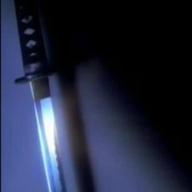急!!!求舒伯特英文簡介!
唔好太長,要簡單.
簡單得嚟又清楚而答得快嘅話就有最佳回答.
thanks!!!!!!!!!!
急!!!(10分)求舒伯特簡介!!!!!
2007-05-26 8:23 pm
回答 (3)
2007-05-26 8:28 pm
✔ 最佳答案
Franz Peter Schubert (January 31, 1797 – November 19, 1828) was an Austrian composer. He wrote some 600 Lieder, seven completed symphonies, the famous "Unfinished Symphony", liturgical music, operas, and a large body of chamber and solo piano music. He is particularly noted for his genius for original melodic and harmonic writing.While Schubert had a close circle of friends and associates who admired his work (including his teacher Antonio Salieri, and the prominent singer Johann Michael Vogl), wider appreciation of his music during his lifetime was limited at best. He was never able to secure adequate permanent employment, and for most of his career he relied on the support of friends and family. Interest in Schubert's work increased dramatically following his death.
For more details, pls click
http://en.wikipedia.org/wiki/Franz_Schubert
2007-05-26 8:31 pm
Upcoming events
Schubert Study Day, Junior Trinity College, Old Royal Naval College, Greenwich, London, Saturday 24 March 2007
Programme
The morning session (11.00–1.00) will consist of a masterclass for young students led by William Howard, pianist of the Schubert Ensemble of London. The afternoon session will include a recital by young students (2.00–2.45) and a performance of Schubert’s Fantasy in C (the ‘Wanderer’), D760, by William Howard (3.00–3.30). Coffee and snacks will be available in the cafeteria.
Travelling directions
By car: Greenwich can be accessed via the M25, A2, A20 and the South Circular (A250). Parking is not permitted within the grounds of the Old Royal Naval College. By bus: Bus routes 177, 180, 188, 199, 286 and 386 all bring you to the heart of Greenwich. By mainline train: Trains to Greenwich leave from London Bridge, Charing Cross and Waterloo East. On arrival at Greenwich station, turn left on the road towards town. The College is approximately a ten-minute walk away. By train and tube: the recommended easiest way to reach Trinity is by the Docklands Light Railway, alighting at Cutty Sark station. The DLR and London Underground connect at Bank, Tower Gateway, Canary Wharf/Heron Quays and Stratford. You can also consult the Trinity College of Music website on www.tcm.ac.uk.
Cavalier Hall, St Albans, Sunday 6 May 2007
SIUK members will no doubt remember the Schubert Day held at St Albans in February 2003, which included an illustrated talk on Schubert’s variations for piano duet given by Isabel Beyer and Harvey Dagul, and a piano recital by Bela Hartmann. Another Schubert Day in St Albans on Sunday 6 May 2007 has been organised by Isabel and Harvey. It will begin at 2.30 pm and will include the Trio in B flat, D581, performed by the Wigram family string trio, and some marches for piano four-hands, discussed and played by Isabel and Harvey. The concert will end – at approximately 5 pm – with the first movement of the Divertissement in E minor, D823.
Schubert Study Day, Junior Trinity College, Old Royal Naval College, Greenwich, London, Saturday 24 March 2007
Programme
The morning session (11.00–1.00) will consist of a masterclass for young students led by William Howard, pianist of the Schubert Ensemble of London. The afternoon session will include a recital by young students (2.00–2.45) and a performance of Schubert’s Fantasy in C (the ‘Wanderer’), D760, by William Howard (3.00–3.30). Coffee and snacks will be available in the cafeteria.
Travelling directions
By car: Greenwich can be accessed via the M25, A2, A20 and the South Circular (A250). Parking is not permitted within the grounds of the Old Royal Naval College. By bus: Bus routes 177, 180, 188, 199, 286 and 386 all bring you to the heart of Greenwich. By mainline train: Trains to Greenwich leave from London Bridge, Charing Cross and Waterloo East. On arrival at Greenwich station, turn left on the road towards town. The College is approximately a ten-minute walk away. By train and tube: the recommended easiest way to reach Trinity is by the Docklands Light Railway, alighting at Cutty Sark station. The DLR and London Underground connect at Bank, Tower Gateway, Canary Wharf/Heron Quays and Stratford. You can also consult the Trinity College of Music website on www.tcm.ac.uk.
Cavalier Hall, St Albans, Sunday 6 May 2007
SIUK members will no doubt remember the Schubert Day held at St Albans in February 2003, which included an illustrated talk on Schubert’s variations for piano duet given by Isabel Beyer and Harvey Dagul, and a piano recital by Bela Hartmann. Another Schubert Day in St Albans on Sunday 6 May 2007 has been organised by Isabel and Harvey. It will begin at 2.30 pm and will include the Trio in B flat, D581, performed by the Wigram family string trio, and some marches for piano four-hands, discussed and played by Isabel and Harvey. The concert will end – at approximately 5 pm – with the first movement of the Divertissement in E minor, D823.
2007-05-26 8:28 pm
(born Vienna, 31 January 1797; died there, 19 November 1828).
Franz Schubert’s presence graced the earth for merely thirty one years. However, in that brief span of time this great composer created a wealth of musical treasures. Schubert was born into a modest family. His father a schoolmaster, encouraged Schubert’s love for music, and the local parish choirmaster, Michael Holzer, directed Schubert’s study of the viola and the organ, as well as of vocal technique. Schubert’s musical abilities grew at a tremendous rate, and at the age of eleven he was admitted into the School of the Imperial and Royal Chapel, where choristers were trained.
Schubert was a shy and timid boy, and life at the school was often difficult. Heating was poor, and food was scarce. Despite its trying physical conditions, the school provided an environment in which Schubert flourished musically. He became proficient on the violin, and spent much of his time happily composing pieces, or playing in the school orchestra. Schubert’s teachers were astonished by his musical abilities. He was a stunning violinist, and his first composition, Hagars K/age, greatly impressed Salieri, the Schubert’s studies. When Schubert’s talents surpassed the teaching skills of Ruczizka, Schubert was transferred to Salieri’s class. Salieri continued to direct his musical progress, astonished by Schubert’s growing accomplishments.
In 1813 Schubert’s voice cracked. As was the custom, he was required to leave the school and return home. Schubert followed in his father’s footsteps, and after a year of training at the Normal School of St. Anna, he became a teacher. However, Schubert soon found that he detested teaching. A quiet, introverted individual, Schubert did not enjoy directing large classes of students, and paid little attention to the children’s progress. His mind was filled with musical melodies, and he was unable to focus his attention on other distractions. 1815 was the year in which Schubert began producing his great masterpieces. Supported by Spaun, a close friend from the School of the Imperial and Royal Chapel, Schubert and two other friends formed a group called the "Schubertians". United by a love for Schubert’s music, this group brought encouragement and financial support to the great composer.
Schubert’s pieces have continually been acclaimed for their lyrical, beautiful! melodies. Although he composed prolifically, producing masses, symphonies, sonatas, choral works, and operas, Schubert is most renowned for the songs, or Lieder. that he composed. He produced over six hundred Lieder, crafting many of the world’s most beloved melodies. Schubert’s facility with multiple instruments enabled him to use the piano as a backdrop for the predominant melodies in his pieces. He obscured the lines between music and poetry, and often set the words of poems to a lovely tune. Ave-Marie is among his masterpieces, and it captures the overwhelming depth of expression that
Although many have been overwhelmed by Schubert’s mellifluous music, Schubert himself was in awe of Beethoven’s masterpieces. Beethoven’s music provided him with life long inspiration. Schubert visited Beethoven’s deathbed, honored to be in the presence of such a great composer. On his own deathbed, Schubert demanded that he be buried next to Beethoven. Thus, Schubert lies in the Wahring cemetery, close to the man whose work arouse is own passion or music.
Franz Schubert’s presence graced the earth for merely thirty one years. However, in that brief span of time this great composer created a wealth of musical treasures. Schubert was born into a modest family. His father a schoolmaster, encouraged Schubert’s love for music, and the local parish choirmaster, Michael Holzer, directed Schubert’s study of the viola and the organ, as well as of vocal technique. Schubert’s musical abilities grew at a tremendous rate, and at the age of eleven he was admitted into the School of the Imperial and Royal Chapel, where choristers were trained.
Schubert was a shy and timid boy, and life at the school was often difficult. Heating was poor, and food was scarce. Despite its trying physical conditions, the school provided an environment in which Schubert flourished musically. He became proficient on the violin, and spent much of his time happily composing pieces, or playing in the school orchestra. Schubert’s teachers were astonished by his musical abilities. He was a stunning violinist, and his first composition, Hagars K/age, greatly impressed Salieri, the Schubert’s studies. When Schubert’s talents surpassed the teaching skills of Ruczizka, Schubert was transferred to Salieri’s class. Salieri continued to direct his musical progress, astonished by Schubert’s growing accomplishments.
In 1813 Schubert’s voice cracked. As was the custom, he was required to leave the school and return home. Schubert followed in his father’s footsteps, and after a year of training at the Normal School of St. Anna, he became a teacher. However, Schubert soon found that he detested teaching. A quiet, introverted individual, Schubert did not enjoy directing large classes of students, and paid little attention to the children’s progress. His mind was filled with musical melodies, and he was unable to focus his attention on other distractions. 1815 was the year in which Schubert began producing his great masterpieces. Supported by Spaun, a close friend from the School of the Imperial and Royal Chapel, Schubert and two other friends formed a group called the "Schubertians". United by a love for Schubert’s music, this group brought encouragement and financial support to the great composer.
Schubert’s pieces have continually been acclaimed for their lyrical, beautiful! melodies. Although he composed prolifically, producing masses, symphonies, sonatas, choral works, and operas, Schubert is most renowned for the songs, or Lieder. that he composed. He produced over six hundred Lieder, crafting many of the world’s most beloved melodies. Schubert’s facility with multiple instruments enabled him to use the piano as a backdrop for the predominant melodies in his pieces. He obscured the lines between music and poetry, and often set the words of poems to a lovely tune. Ave-Marie is among his masterpieces, and it captures the overwhelming depth of expression that
Although many have been overwhelmed by Schubert’s mellifluous music, Schubert himself was in awe of Beethoven’s masterpieces. Beethoven’s music provided him with life long inspiration. Schubert visited Beethoven’s deathbed, honored to be in the presence of such a great composer. On his own deathbed, Schubert demanded that he be buried next to Beethoven. Thus, Schubert lies in the Wahring cemetery, close to the man whose work arouse is own passion or music.
收錄日期: 2021-04-13 00:47:50
原文連結 [永久失效]:
https://hk.answers.yahoo.com/question/index?qid=20070526000051KK01502


